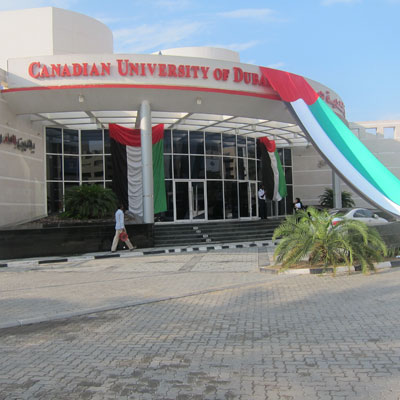Postal address: Företagsekonomiska institutionen, Ekonomihögskolan, P O Box 7080, SE-220 07 Lund, Sweden
Visiting address: Tycho Brahes väg 1
Web page: http://www.fek.lu.se/
Research connected to South Asia
Several South Asia related projects were initiated between 1986 and 1995, when Professor Hans Jansson was working at the department as a researcher/supervisor. He did research work on industrial policy, liberalisation, and transnational corporations in India. Hans Jansson however is now working at the Dept of Business Economics at the Baltic Business School, within the Linnaeus University in Kalmar.
 PhD Mohammed Nurul Alam defended his doctoral thesis on ”Financing of Small and Cottage Industries in Bangladesh by Islamic Banks: An Institutional-Network Approach”, on 24 October, 2002, after being a Research Fellow at the Department for many years. Faculty opponent was Professor Amjad Hadjikhani, Dept of Business Administration, Uppsala University. Full information about the thesis.
PhD Mohammed Nurul Alam defended his doctoral thesis on ”Financing of Small and Cottage Industries in Bangladesh by Islamic Banks: An Institutional-Network Approach”, on 24 October, 2002, after being a Research Fellow at the Department for many years. Faculty opponent was Professor Amjad Hadjikhani, Dept of Business Administration, Uppsala University. Full information about the thesis.
An article on the thesis project was published in LUM (Lunds Universitet Meddelar) 10/2002. Read the article by Ulrika Oredsson (as a pdf file).
Later, he extended his research work on Small Business and Small Industries in least developed nations like Bangladesh, India, Pakistan. His research was carried out through the framework of Lund Institute of Economic Research – the research division of the School of Economics and Management, and its interests are mainly concerned with the activities of the Islamic Banks, a newly developed financial institutions that give credit to their customers without any interest. He focused his research on particular issues as to how this type of bank render credit facilities towards small and cottage industry owners in developing nations especially in Bangladesh.
Basically a teacher in various commerce subjects like Financial Accounting, Auditing and Cost Accounting, he has also worked with the United Nations under UNDP Umbrella Project as ’Lecturer in Accounting and Finance’ at Kenya Institute of Administration (K I A) in Nairobi, Kenya, from 1979 to 1985; and as part of his professional qualification he completed his Chartered Accountant Articleship Course in Bangladesh in the year 1987. He worked as an Assistant Professor in Accounting at the Islamic University, Bangladesh from 1987 to 1989. At Lund University he taught banking subject in the Master’s program on South East Asian Studies.
 From February 2004 he worked at the Sultan Qaboos University in Oman, but in 2011 he moved to Dubai, United Arab Emirates, where he works as Professor in the Department of Business Administration at the Canadian University of Dubai (photo).
From February 2004 he worked at the Sultan Qaboos University in Oman, but in 2011 he moved to Dubai, United Arab Emirates, where he works as Professor in the Department of Business Administration at the Canadian University of Dubai (photo).
In late November 2012, SASNET’s deputy director Lars Eklund visited Prof. Alam in Dubai and visited his university.
Mr Alam is continuing his research on Interest-free Micro-Credit in Bangladesh. In May 2008 he presented a paper in the Global Conference of Business and Finance organized by Institute of Business and Finance Research (IBFR), San Jose, Costa Rica. The paper was entitled: ‘Interest-Free Micro Credit: A Tool for Promoting Different Network Relationships‘. He received an outstanding Research Award for his research in this particular filed. Researchers from 72 countries presented about 196 research paper of which the conference committee selected 19% of the paper for the research award.
Publications from recent years:
– Alam, M. N. (2010) “Interest-free micro credit to micro entrepreneurs: Unique means to minimize borrower’s costs. (A case of Bangladesh)”, World Journal of Entrepreneurship, Management & Sustainable Development, (Paper accepted for publication), May 2011.
Alam , M. N., Alam, Masudul C (2011) “Interest-free micro credit to micro entrepreneurs: An Instituonla Network Approach” Islamic Economics and Finance: an Epistemological Inquiry (Contribution to Economic Analysis Volume 291, Nov. 2010.
– Alam M. N. (2009) “The importance of Basic Accounting Knowledge to Rural-Based Micro Entrepreneurs (Case of Bangladesh)”. ‘Indonesian Management and Accounting Research IMAR’ ISBN: 1411-8853, Volume 8, No 2’. July 2009.
– Alam M, N. (2009) ‘Empowering Small Entrepreneurs by Islamic Banks: A study of lender-borrowers network relationships between small entrepreneurs and different financing organizations” ISBN 13: 978-3-8383-1241-5 LAP Lambert Academic Publishing AG & Co KG, December, 2009.
– An Institutional Network Approach of partnership Mode of Interest-Free Microfinance and Islamic Banking: A Case Study, Winter 2009, Handbook of Business Practices and Growth in Emerging Markets, edited by Satyendra Singh, (University of Winnipeg, Canada)
– A comparative study of financing small and cottage industries by interest-free banks in Turkey, Cyprus, Sudan and Bangladesh. Humanomics, Vol 24 No 2, 2008 (Emerald Group Publishing Limited).
– The influence of societal sector institutions in promoting lener-borrowers network relationships. Humanimics, Vol. 22 No 2, 2006 (Emerald Group Publishing Limited.
– Core Competencies in Small Manufacturing Firms : A case Study. Co-written by Md. Mostaque Hussain and Mawdudur Rahman. Journal of Accounting, Business and Management.ID : 13-02-06, October, 2006.
– Micro Credit through Bai-Muajjal Mode of Islamic Banking Financing System. Cambridge MADVC Microfinance and Development Venture Capital) Network. April, 2004.
– An Institutional-Network Approach in Studying Differences between Conventional and Islamic Banking Systems, M.A. Choudhury ed. 2005. Money and Real Economy, Leeds, UK: Wisdom House, pp. 171-193.
– Institutionalization and Development of Saving Habits through Bai- Muajjal Mode of Islamic Banking Finance (A unique means of mobilizing rural savings towards productive sources)., Managerial Finance, Selected Financial Institutional Structures and Policy Perspective, Volume 29, Number 2/3, Barmarick Publications, England, January, 2003.